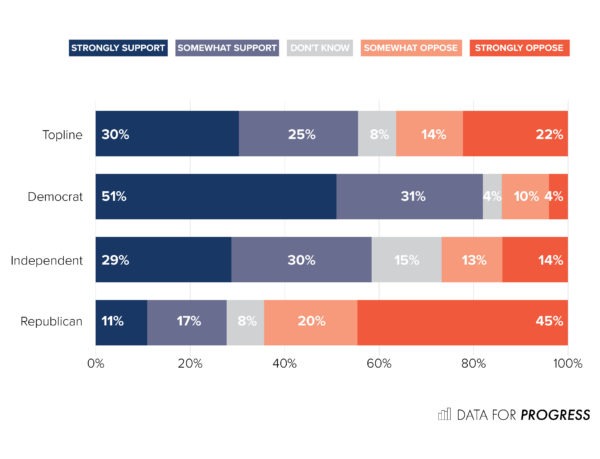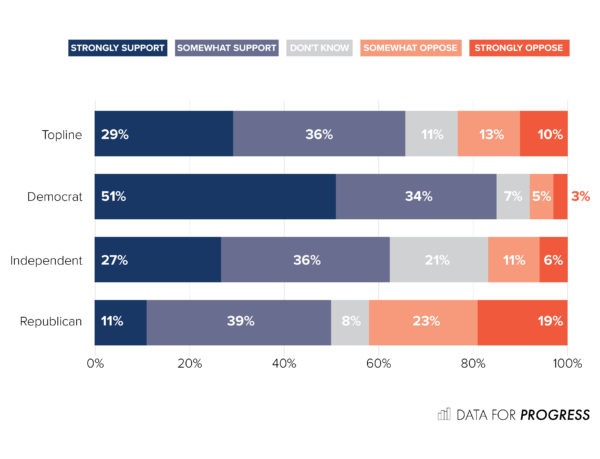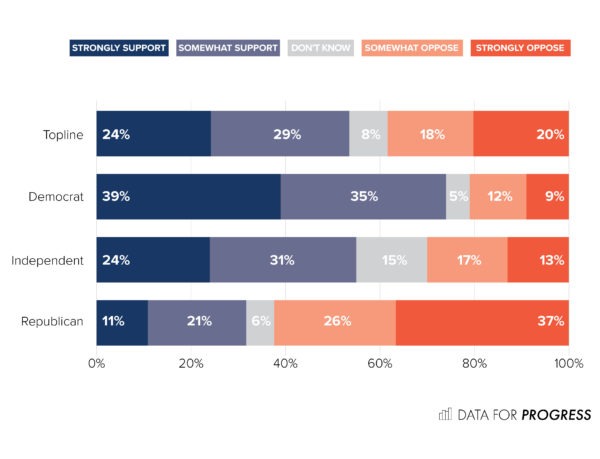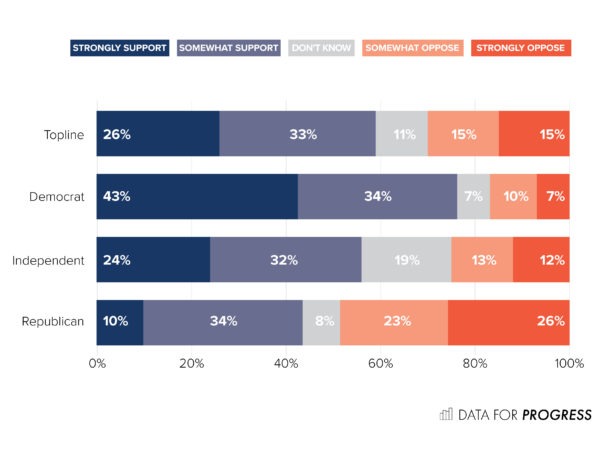Voters in Frontline and Swing Districts Support Progressive Policies
In a survey of a selection of frontline districts, including many that flipped for Republicans in 2020, majorities of voters expressed support for progressive reforms on healthcare, the environment, and policing. In other words, the very policies blamed for electoral defeats in frontline districts in fact have majority support among those same voters.

House Democrats began the 117th Congress with their slimmest majority since the 1940s, after defeats in several “frontline” and swing congressional districts from California to Iowa to Florida. The loss of 13 seats—following a “blue wave” in 2018 that netted 40—prompted the reflexive critique that progressive policy ideas are an electoral liability. On this theory, calls to defund the police, adopt single payer healthcare, and invest heavily in renewable energy invited successful attacks from the right that leveled the party’s vulnerable center.
A new poll from Data for Progress and The Lab, a policy vertical of The Appeal, casts doubt on this theory.
In a survey of a selection of frontline districts, including many that flipped for Republicans in 2020, majorities of voters expressed support for progressive reforms on healthcare, the environment, and policing. In other words, the very policies blamed for electoral defeats in frontline districts in fact have majority support among those same voters. Among the findings:
- A majority of swing-district voters support creating a single-payer healthcare system such as Medicare for All—including 82% of Democrats and 59% of independents.
- Democratic voters overwhelmingly support large-scale investment by the federal government in renewable energy (85%), along with a majority of independents (63%), and half of Republicans.
- Nearly 60% of voters—including 77% of Democrats and 56% of independents—support creating police oversight commissions that give non-law enforcement officials power to review police actions, issue subpoenas, and impose disciplinary actions.
- A majority of voters want to reallocate funds from their local police budget to crime-prevention initiatives such as counseling, drug treatment, job training, and education, including 74% of Democrats and 55% of independent or third party voters.
The poll was conducted in a broad selection of frontline and swing districts, including South Carolina’s 1st, New Mexico’s 2nd, Oklahoma’s 5th, Iowa’s 1st, Minnesota’s 7th, Florida’s 26th, New York’s 11th, Illinois’s 17th, Virginia’s 7th, and California’s 39th, 48th, and 21st.
The results demonstrate the broad popularity of progressive ideas within the Democratic electorate and among independent voters, extending well beyond deep-blue urban centers. Assessments of what went wrong can and should continue—but dismissing progressive ideas as politically risky contradicts the policy views of voters.
Polling & Findings
Do you support or oppose creating a single-payer healthcare system, such as Medicare-For-All, that guarantees health insurance for everyone?

Do you support or oppose large-scale investment by the federal government in renewable energy technologies and infrastructure?

Thinking of the city or town where you live, do you support or oppose reallocating some funds from law enforcement agencies to programs that reduce crime in the first place, such as counseling, drug treatment, job training, and local schools?

Do you support or oppose creating police oversight commissions made up of non-law enforcement officials that have the power to review police actions, issue subpoenas, and impose disciplinary actions?

Polling Methodology
From December 10 to December 29, 2020, Data for Progress conducted a survey of 1152 likely voters in a selection of swing and frontline districts (SC-1, NM-2, IA – 1, OK-5, MN-7, FL-26, NY-11, IL-17, VA-7, CA-39, CA-48, CA-21) using web panel respondents. The sample was weighted to be representative of likely voters by age, gender, education, race, and voting history. The survey was conducted in English. The margin of error is ±2.9 percentage points.

